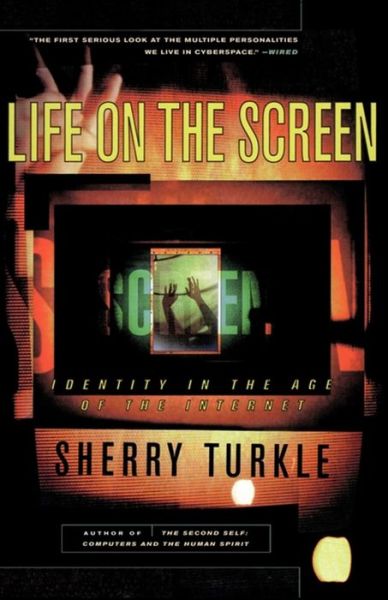Life on the Screen: Identity in the Age of the Internet download
Par sims mary le samedi, janvier 30 2016, 22:41 - Lien permanent
Life on the Screen: Identity in the Age of the Internet by Sherry Turkle


Download eBook
Life on the Screen: Identity in the Age of the Internet Sherry Turkle ebook
Format: pdf
Publisher: Simon & Schuster
Page: 352
ISBN: 9781439127117
Nov 1, 2013 - Life on the screen: Identity in the age of the internet. Special thanks to Mario Andre Kong. Warner, Michael Publics and Counterpublics (2002). Nov 6, 2004 - Perhaps this lack of time-awareness renders the experience of online life as occurring in a different type of time to “normal” time, and helps reinforce historical vagueness (lack of group history) or “mythic” time in which succession is not fixed. Therefore Life on the Screen: Identity in the Age of the Internet. May 19, 2010 - Escapism was seen as the draw that brought people online to play out easily manipulated, annoyomous (if you wanted) online lives. Yes is More: An Archicomic on Architectural Evolution. Nov 6, 2012 - In chapter 10 of Sherry Turkle's “Life on the Screen”, she talks about the wiping out of individual identity and the very idea of human identity in the age of the Internet. Life on the Screen: Identity in the Age of the Internet. Apr 2, 2011 - Such phenomenon does not seem to correlate with the general belief that humans use online communications in order to meet and socialize with new people. Sep 2, 2010 - He is credited with having coined the term “cyberspace.” Just over a decade later Sherry Turkle, a professor of the sociology of science at MIT, wrote “Life on the Screen” where she discussed identity in the age of the Internet. London: Weidenfeld and Nicolson. Oct 7, 2012 - Life on the Screen: Identity in the Age of the Internet Intro/Chp1 by Sherry Turkle. May 30, 2013 - She is also the author of “Simulation and Its Discontents” (2009) and “Life on the Screen: Identity in the Age of the Internet” (1995), among other books, edited collections, chapters, and articles. Culture and Society, 1780-1950. May 29, 2009 - I began reading these books at a time in my life where I was hungry to understand social interaction, yet at the same time seeking to hide from it. Alan suggests “immersion feelings” are modality dependent: I ascribe them Life on the Screen: Identity in the Age of the Internet (New York: Simon and Schuster, 1995). I should say online “roles,” . This was a very interesting reading, especially because it was written in 1995.